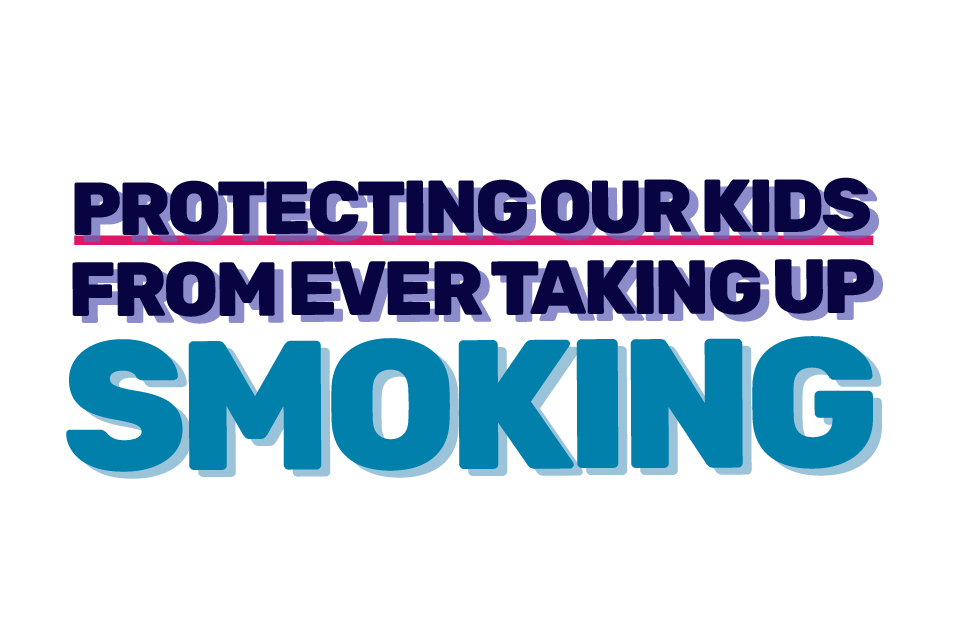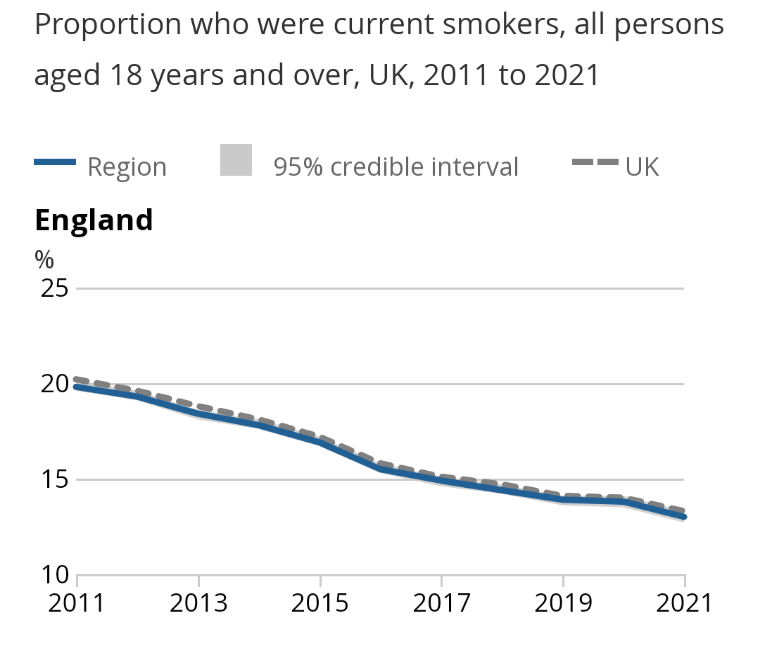This market will resolve yes if a large, nationally representative survey in England finds that 5% (or less) adults smoke cigarettes by the end of 2030. This includes surveys released after this date, but the data covers 2030 or earlier. I will accept rounded figures to the nearest 0.1% (e.g. the true figure could be 5.04% and this market would still resolve yes).
The UK government has set a target for England to be 'smokefree' by 2030 - achieved when adult smoking prevalence is 5% or less.
The latest figures from the Office of National Statistics suggest that in 2021, 13% of adults in England smoked, down from 13.8% the year before and the lowest rate ever recorded.
A recent review (the 'Khan review') said that “without further action, England will miss the smokefree 2030 target by at least 7 years”, and made 15 recommendations to help the government achieve its smokefree ambitions.
Since then, the UK government has announced a scheme to provide 1 million smokers with free e-cigarette starter packs to help them quit (known as 'swap to stop'), as well as financial incentives to encourage pregnant women to stop smoking. https://www.gov.uk/government/news/smokers-urged-to-swap-cigarettes-for-vapes-in-world-first-scheme
People are also trading
No; According to Gregory (2022), the UK government's ambitious goal of achieving a smoke-free status by 2030 is acknowledged in the article. However, concerns raised by Cancer Research are highlighted, suggesting that this target may be missed, particularly due to the persistent use of cigarettes among lower-income individuals. While no specific percentage is mentioned, the article underscores the substantial challenge in reaching the goal of having 5% or fewer adults smoking in England by 2030. Simultaneously, amidst the growing global concern about obesity, tobacco use remains a prominent public health threat affecting 1.3 billion people and causing 8 million annual deaths, including 1 million from second-hand smoke exposure. Notably, New Zealand is taking a leading role by banning tobacco sales to those under 14, while England is considering policies like raising the smoking age to 21 and imposing higher tobacco taxes to work toward the objective of being smoke-free by 2030, with successful outcomes contingent on effective policy implementation.
Reference: England going smoke-free by 2030 depends on No 10 willpower. (2022, June 8). The Guardian. https://www.theguardian.com/society/2022/jun/08/england-going-smoke-free-by-2030-depends-on-no-10-willpower-khan-review
@MrLuke255 no to vaping. For the most part this is going to be limited to traditional cigarettes, in the sense that the outcome will be determined by a survey question asking whether someone smokes cigarettes or not. However, if a person using IQOS interpret that question to include IQOS, then they'll obviously be included in the stat.
Relevant announcement today: "The government is set to introduce a historic new law to stop children who turn 14 this year or younger from ever legally being sold cigarettes in England, in a bid to create the first ‘smokefree generation’.
Proposed new legislation will make it an offence for anyone born on or after 1 January 2009 to be sold tobacco products – effectively raising the smoking age by a year each year until it applies to the whole population. This has the potential to phase out smoking in young people almost completely as early as 2040."
https://www.gov.uk/government/news/prime-minister-to-create-smokefree-generation-by-ending-cigarette-sales-to-those-born-on-or-after-1-january-2009#:~:text=Proposed%20new%20legislation%20will%20make,completely%20as%20early%20as%202040.



